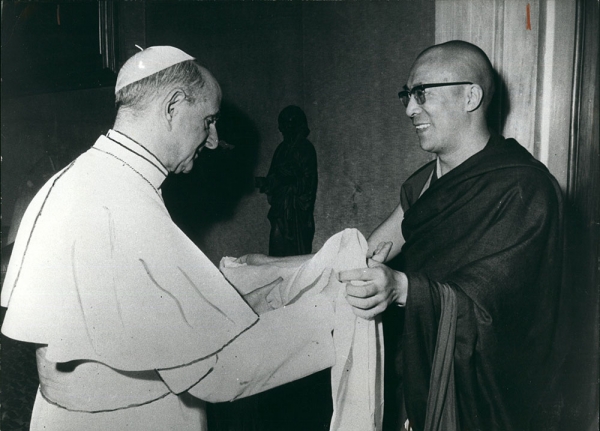China’s empty promise of rule by law
Teng Biao, The Washington Post | December 28, 2014
During the year that is drawing to a close this week, much has been made of the Communist Party of China’s new emphasis on “governing the country according to law.” But those who imagine that fundamental reforms will flow from this rhetoric would do well to remember the warning that Foreign Ministry spokeswoman Jiang Yu gave in response to questions about the legal justification for a 2011 incident of press mistreatment: “Don’t use the law as a shield.” I don’t understand why some are so willing to believe what the party says while disregarding what it does.
This is hardly the first time the Communists have raised the banner of “rule of law.” Even before they seized power and established totalitarian rule, they promised liberty and constitutional democracy. In 1997, the idea was written into the report delivered at the party’s 15th Congress, and in 1999 it was written into the Constitution. But that same year saw the savage repression of the Falun Gong. Since President Xi Jinping came to power, hundreds of rights defenders and intellectuals have been thrown into prison for political reasons. Properties have been expropriated or demolished, free speech has been restricted, religion has been suppressed, women have been forced to have abortions, and torture has multiplied. In Xinjiang and Tibet, the authorities have carried out one shocking human rights catastrophe after another. The abuses have never stopped.
To the Chinese Communist Party, “governing the country according to law” does not mean rule of law as you and I understand it. The essential element required for rule of law — using the law to limit the power of the government — stands in ideological opposition to the purpose of the party. In reality, the rule of law that the party talks about is “Lenin plus Emperor Qin Shi Huang” — modern totalitarianism combined with pre-modern Chinese “legalism.” It is nothing more than a tool to further control society. Rule of law is always superseded by the rule of the party, and there is not a shred of doubt about this.
The legislative organs controlled by the Communist Party have promulgated volumes of statutes. The judicial organs, also controlled by the party, are busy with cases. The legal professions have been developed. But is the law at the center of the governing order?
As University of Hong Kong law professor Fu Hualing has pointed out, many extra-legal processes — and extra extra-legal processes — stand above and apart from the law. These include shuanggui (an extralegal detention and interrogation system used to enforce discipline within the party), media restrictions, house arrest, secret police, “black jails,” chengguan (a para-police force that works with police across the country to enforce minor city rules and regulations), spying on citizens, torture, disappearances and Internet police. Without such tools, how long could the Communist Party continue to rule?
This year’s “governing the country according to law” is just another attempt by the party to address its crisis of legitimacy. Such slogans may help the party fool people within China and the international community. But legitimacy can come only via recognition given through free elections, and here the party is stuck. Clinging to one-party rule, it completely rejects general elections, even in Hong Kong. True rule of law would mean the end of the one-party system. This is the limitation on the legalization process that cannot be overcome.
Over the past 10 years, I and other human rights defenders have consistently sought to use Chinese laws to carry out our human rights work, and occasionally we’ve had success. But the limitations are obvious. Whenever the authorities begin to feel a threat from civil society, they move to suppress it. I have had my lawyer’s license revoked, been expelled from my university and been kidnapped several times. When the security police were torturing me, they shouted: “Don’t talk about any of this law stuff with us.”
In enumerating the progress being made in China, some observers have pointed out the falling number of death sentences, a new criminal procedure law, the abolishment of re-education through labor, reform of the local courts, the government’s willingness to release more information and the ongoing anti-corruption campaign. But it is questionable whether this represents progress. And even if it does, the major driving force for these changes has been not the party but the people — each change a result of pressure by rights lawyers, democracy activists and countless Chinese on the lower rungs of society.
Xi Jinping once talked about locking up power in a cage, but this is not much different than a magician wrapping an iron chain around himself. In reality, what party officials would like to do, and are doing, is to lock the people in a cage. Sycophants are able to imagine a “spring” for rule of law that doesn’t exist only by ignoring human rights disasters suffered by Ilham Tohti, Xu Zhiyong, Cao Shunli, Gao Zhisheng, Uighurs, Tibetans, petitioners, Falun Gong adherents and house churches.
This kind of selective blindness has prevented Western readers and politicians from understanding the reality in today’s China. It’s no surprise that this type of seemingly even-handed wishful thinking has become the excuse for Western governments to adopt short-sighted policies of appeasement in dealing with autocratic regimes and for favoring trade over human rights.
Teng Biao is a human rights lawyer and a visiting fellow at Harvard Law School.


